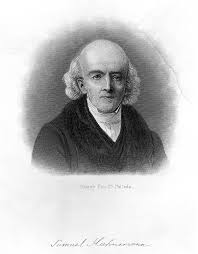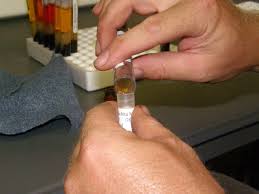
The Philadelphia newspapers of April 16th, modestly headlined the fact that the Philadelphia County Medical Society – allopathic, for want of a descriptive name – had admitted to membership four graduates of the Hahnemann Medical College of the same city. The reporter makes the following comment on the act:
“This was the first time in the society’s history that disciples of Samuel Hahnemann have been granted that privilege, and the move is regarded by physicians in general as revolutionary in the professional relations between the two schools of medicine.” What form this revolution is to take the reporter does not state. Dr. Henry Beates, Jr., however, president of the State Board of Medical Examiners (allopathic, for want of a more descriptive term) and general spokesman of late for the medical orthodox, comments on the “revolutionary” event as follows:
“This is not letting down the bars. No homoeopaths will be admitted as such. We all know, however, that a physician is a scientific man, who treats suffering humanity in any manner and by the use of any means that genuine scientific study has proved to be of value for relief or cure. A doctor, therefore, cannot possibly be limited to any single theory, cannot be a sectarian.
“We propose, then, to take the stand that all practitioners of the healing profession, from whatever school, may be admitted to membership, so long as they can honestly declare that they are governed by no dogma. This and the proof that they are thoroughly educated in science of medicine as taught at approved colleges are the sole requirements of a technical sort.”
At the first reading this appears to be just what-all men of sense are looking for, but the oftener it is read the clearer the avoidance of its own sentiments is apparent. Dr. Beates and his side loudly exclaim against “dogma,” but they really mean “all dogma that is not our own.”
Medicine is a peculiar science, or art, or whatever it may be termed, in that it cannot, apparently, be formulated into a science. Samuel Hahnemann tried to so formulate it, and men who believe in Homoeopathy think he succeeded. Science at its root means “knowing,” with the attendant capacity of demonstrating that which you know. In all sciences man formulate demonstrable truths which if doubted can be proved, their formulated science is not dubbed by that old scre-crow word (really used only by the narrow minded) “dogma:” but when it comes to medicine the rules that apply to science are useless, for if a man of medicine formulates a belief, as did Hahnemann, it is not an apothegm of science but a “dogma.” Homoeopathy is merely “dogmatic assertion,” they say. If homoeopathy is not the science in medicine of drug therapeutics, then there never can be a science in medicine. Are not the results of every science its true and only test? Wherever and whenever true Homoeopathy is put to the test of curing the sick – and is not that the supreme test of medicine? – it give results so far superior to all other medical methods as to raise the question as to whether the other methods are not harmful.
Yet the men who employ methods that in results are not comparable to those of homoeopathy, and who with no sense of humor, dub their methods “scientific” are willing to receive the homoeopaths into fellowship if the latter will abjure their “dogma” which is to say, give up their formulated science. It not this very requirement evidence of a pragmatical dogmatic narrow-mindedness quite foreign to science? And what is to be gained by association with those who thus restrict mental freedom? Nothing.




